Upper Canada District School Board
Tom Stretton's Chemistry Pages: Identifying the Element
Can you apply your knowledge of the elements to real-world uses? Read these fifty clues about chemical elements, and identify the correct element by name and symbol.
Royal Society of Chemistry
Chemical Society: Antimony
Introductory level information on the origin, discovery and description of antimony.
Royal Society of Chemistry
Chemical Society: Iron
Brief information on the history, properties ands uses of iron.
Royal Society of Chemistry
Chemical Society: Iridium
A short summary of iridium's properties and main uses.
Royal Society of Chemistry
Chemical Society: Iodine
Resource provides basic informatioin on iodine and its properties.
Royal Society of Chemistry
Chemical Society: Indium
Brief information about indium, focussing on history, properties and uses.
Wikimedia
Wikipedia: Dmitri Mendeleev
This overview of the life and accomplishments of chemist Dmitri Mendeleev discusses his upbringing and education. It also provides details on his creating the Periodic Table and his presentation to the Russian Chemical Society.
Fun Brain
Fun Brain: Proton Don (Periodic Table Game)
Play by matching an element's name to its symbol or supply the missing name for an element when presented with its symbol. Includes a tutorial so that you can review the symbols for elements before you play.
Wikimedia
Wikipedia: Atomic Number
Wikipedia provides the definition of the term, "Atomic number," a term used in chemistry and physics to represent the number of protons in the nucleus of an atom.
Royal Society of Chemistry
Royal Society of Chemistry: Visual Elements: Silicon
Very short entry describing silicon.
Royal Society of Chemistry
Royal Society of Chemistry: Visual Elements: Selenium
Short entry describing selenium and a couple of its uses.
Royal Society of Chemistry
Royal Society of Chemistry: Europium
Short summary of a description of europium, along with its uses.
Royal Society of Chemistry
Royal Society of Chemistry: Erbium
This resource presents a short description of erbium's properties and uses.
Royal Society of Chemistry
Royal Society of Chemistry: Fluorine
This resource presents a short summary of some descriptive information on fluorine.
Royal Society of Chemistry
Royal Society of Chemistry: Fermium
This resource presents a short summary of some interesting information on fermium.
Royal Society of Chemistry
Periodic Table: Copper
A short summary of some basic information on copper and how it is used.
Upper Canada District School Board
Tom Stretton's Chemistry Pages: The Chemistry of Carbon and Silicon
Deepen your understanding of the elements, carbon and silicon. Find out how and why they are related on the Periodic Table of Elements.
Educaplus (Jesús Peñas Cano)
Educaplus: Simbolos De Los Elementos [In Spanish]
Try to match the names of the different chemical elements and their symbols. You can check the results and how long it took you to match them.
Ducksters
Ducksters: Kids Science: Elements
Kid's learn about the science of chemical elements. Basic forms of matter made from a single type of atom.
Upper Canada District School Board
Tom Stretton's Chemistry Pages: Evolution of the Elements
Through an online slide-show format, learn about the historical development of the Periodic Table of Elements.
Educaplus (Jesús Peñas Cano)
Educaplus: Particulas De Los Atomos E Iones [In Spanish]
Use this interactive activity to learn how to interpret the symbols of different elements. You can check your work at the end.
Science Struck
Science Struck: History of the Periodic Table
The modern periodic table has evolved over a long period of time as new discoveries have been made. Learn about the contributions made by different scientists to its development.
Corrosion Source
Corrosion Source: Fermium
This resource presents information on the history and isotopes of fermium.
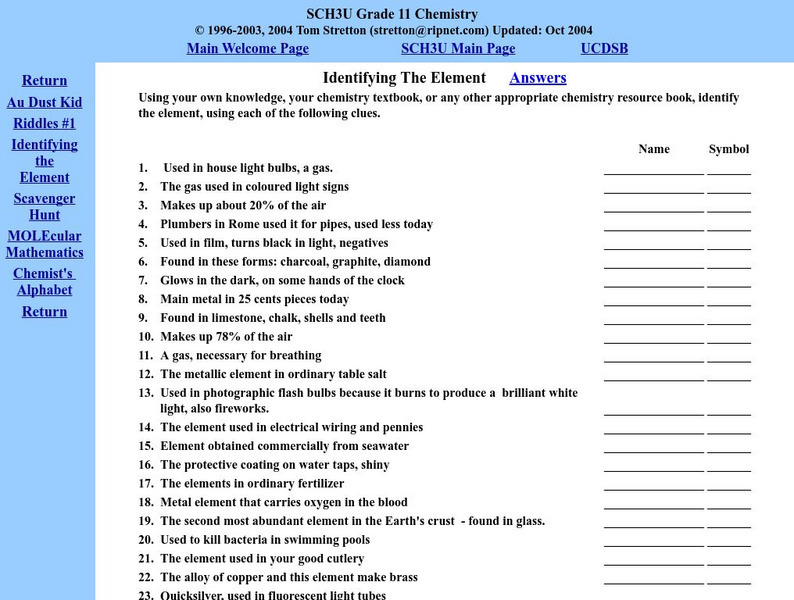

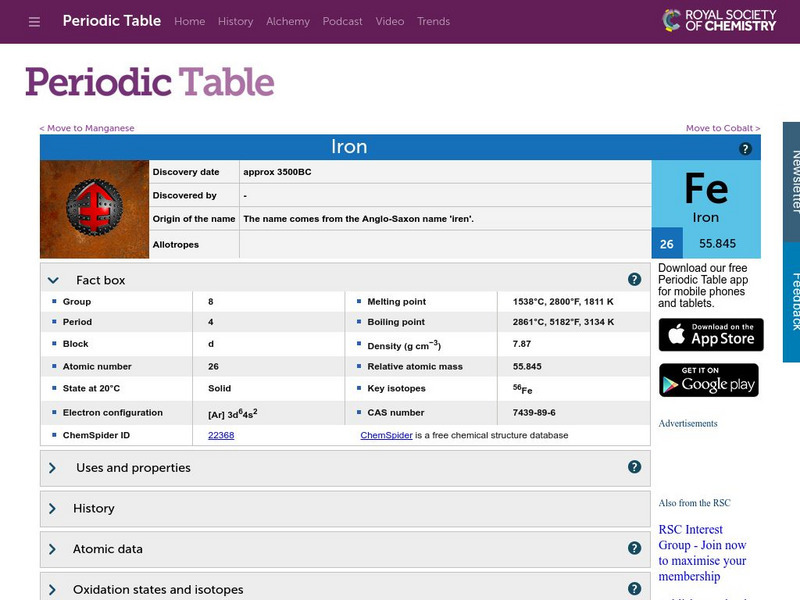


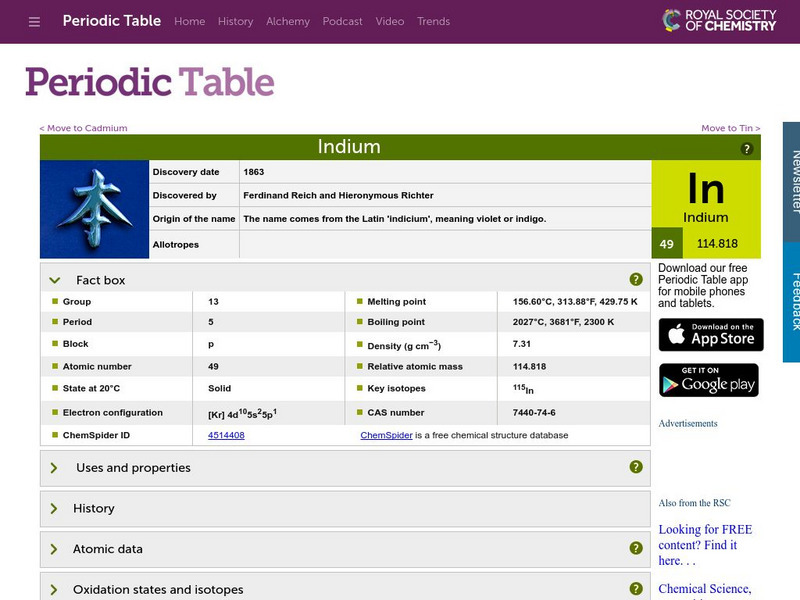
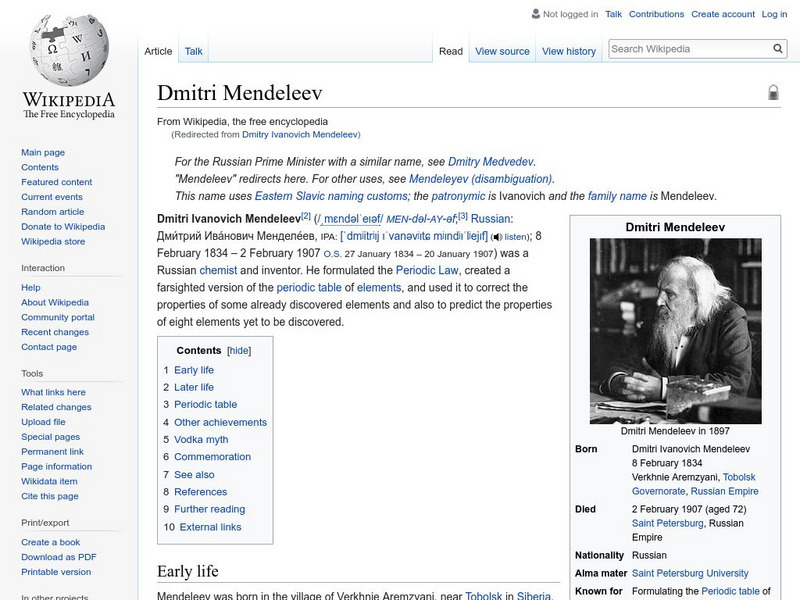

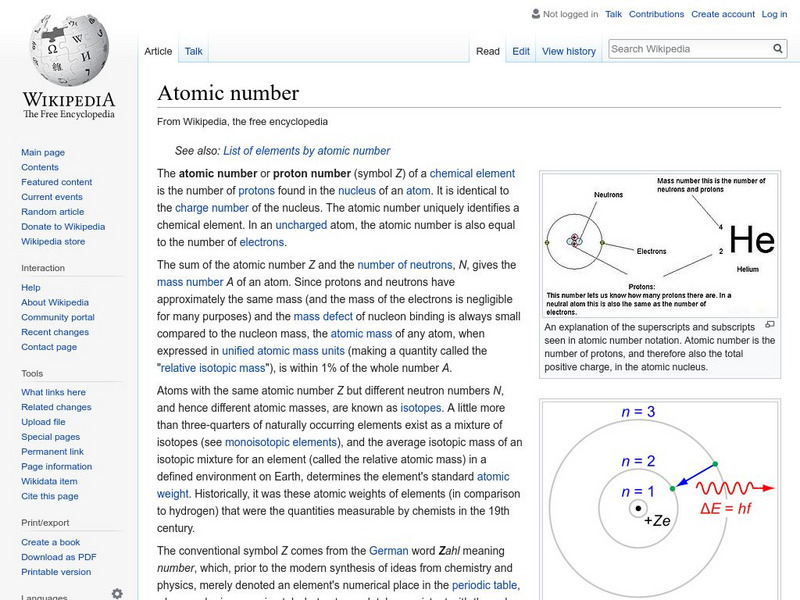






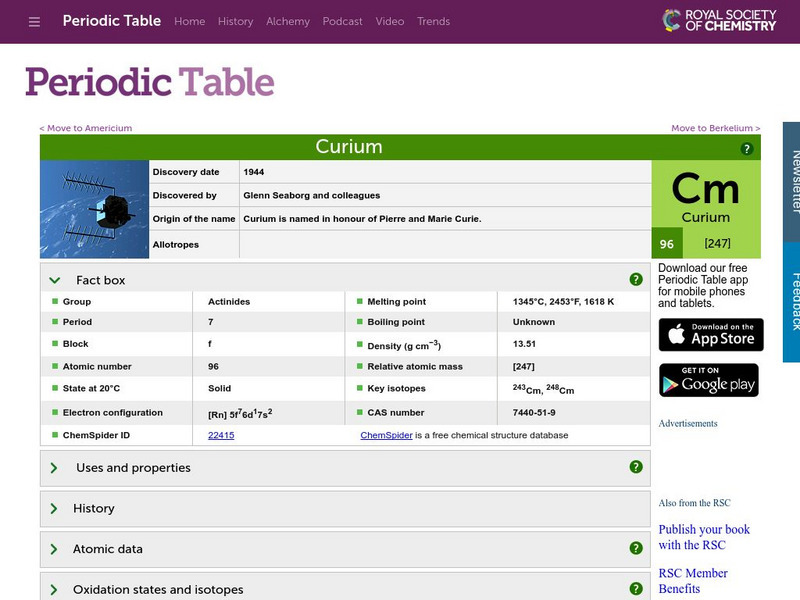


![Educaplus: Simbolos De Los Elementos [In Spanish] Activity Educaplus: Simbolos De Los Elementos [In Spanish] Activity](https://content.lessonplanet.com/knovation/original/120231-1280b6021966c967e3305e048b3ab0cf.jpg?1661605028)


![Educaplus: Particulas De Los Atomos E Iones [In Spanish] Activity Educaplus: Particulas De Los Atomos E Iones [In Spanish] Activity](https://content.lessonplanet.com/knovation/original/367908-81e393cc22e7d99d8ca564bb5711d4bd.jpg?1661774127)